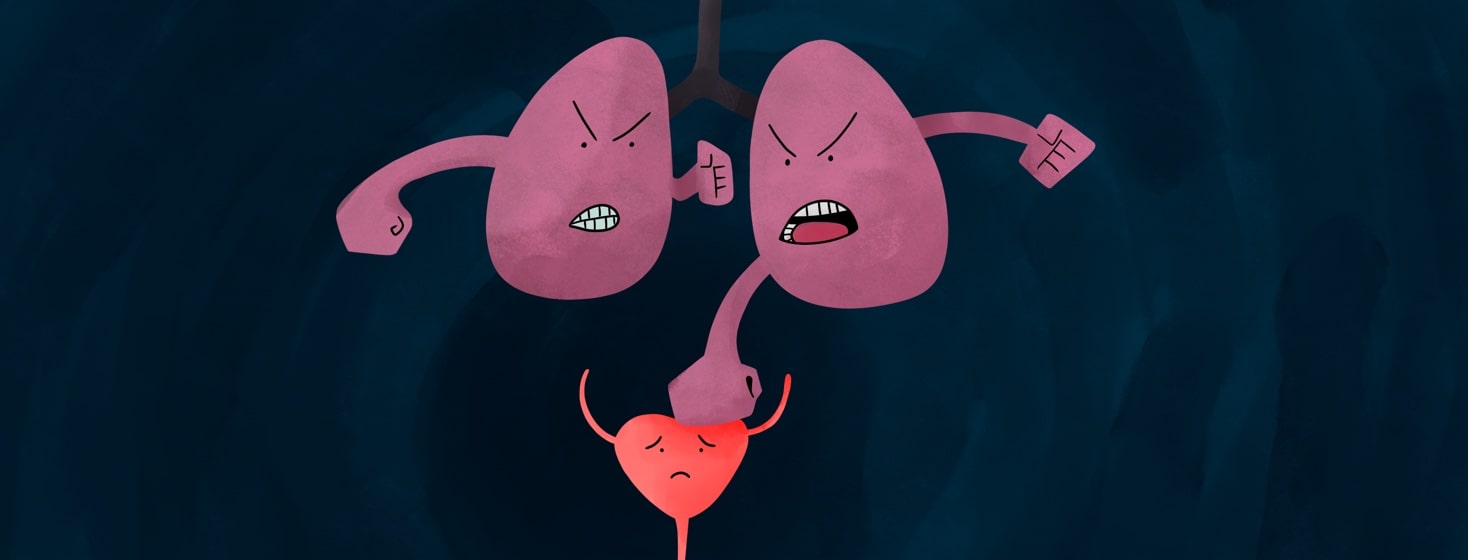Urinary Incontinence When Coughing
The middle of the night hacking had made a comeback, a combination of an exacerbation and a wicked infection. I am just coming off another exacerbation, and I am really hoping that this trend is coming to an end. The cough that I have associated with this exacerbation is becoming a major drain on me.
If it isn’t the lack of sleep or the sore intercostal muscles, I am going through the worst coughing side effect: urinary incontinence. Yes, you heard me right, bladder leaks! When did I revert to being a small child or of age where it may be common to wear bladder leak protection?
Experiencing urinary incontinence when coughing
This just feels like another thing added to the list of things that are going wrong with my health and my body. This is a position that I don’t think many people want to be in, but after a few . . . leaks . . . it was time for protection.
I found myself in the “incontinence” aisle of the pharmacy wondering what I should even buy. While the packages have ratings and numbers, I had no idea what the levels of protection were. What level do you buy for “peeing yourself while coughing?" I went for the ones that looked the least like mattresses and hoped for the best. I bought a selection because apparently the level of protection and coverage matter.
This had me thinking about what was causing my loss of bladder control, especially when I am trying to keep my bladder as empty as possible. It looked like it was stress incontinence from my experience, and I got confirmation from urology.
What is stress incontinence?
Incontinence is the involuntary loss of urine. Stress incontinence is when stress is put on the bladder and there is an involuntary loss of urine.1
In my case, the stress was from an excessive amount of forceful coughing. The coughing (force) is thought to cause a change in bladder pressure, and this leads to urinary incontinence, commonly known as bladder leaks.1
The urethra is the muscle responsible for the opening and closing of the bladder, and it generally stays closed until you can get to the washroom. The force of a cough can apply extra pressure, especially if the urethra is weakened. Weaker urethras are involved in a greater number of bladder leaks.1,2
What can be done about urinary incontinence in people with asthma?
Since I would prefer to not pee myself on an ongoing basis, I went on a search for what can be done. The good news is that my case is likely to have a limited run. Once my infection and exacerbation have resolved, I should have less force on my bladder and better bladder control.
Right now, my cough seems to be taking over, and I can’t manage a coughing fit and activating my pelvic floor muscles (to prevent bladder leaks) at the same time. While surgery could be indicated in some circumstances, it is very unlikely in mine.
But my urologist did suggest that I need to work on my pelvic floor exercises. Kegel exercises, here I come! Seriously, nothing to giggle about, but it reminds me of high school when we would discuss kegels so we could impress our boyfriends. Who knew they were multi-purpose?
If you have concerns about bladder leaks, it is important to speak with your physician. Have you experienced urinary incontinence when coughing? Share your experience in the comments below!

Join the conversation